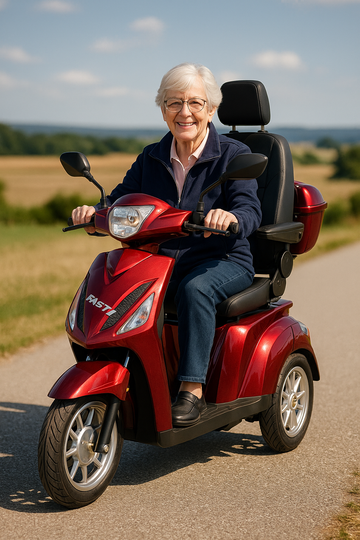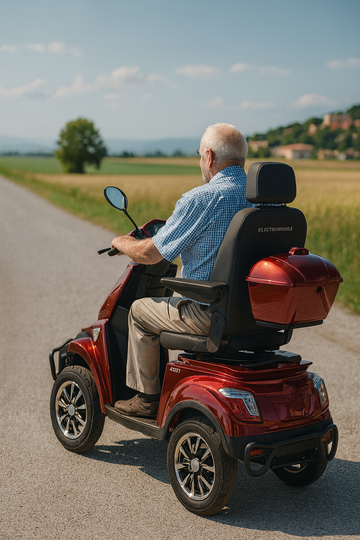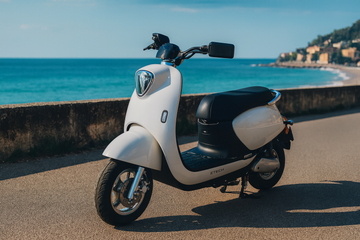In the world of electric vehicles, lithium battery-powered four-wheelers like the BullBike Maseru are becoming increasingly popular. But how does it compare to lead-acid battery-powered three-wheelers? Is the lithium battery-powered four-wheeler really better? In this article, we take a close look at the pros and cons of BullBike Maseru and lead-acid battery-powered three-wheelers to determine which option is the best.
1. BullBike Maseru: four-wheeler with lithium battery
The BullBike Maseru is an electric vehicle based on a four-wheeler and powered by a lithium battery. Lithium batteries are considered a sophisticated and powerful energy source for electric vehicles. They offer high energy density, low weight and long life. These characteristics make them ideal for use in electric vehicles such as the BullBike Maseru, which requires high performance and reliability. With a lithium battery, the BullBike Maseru can achieve impressive range and driving performance while being low maintenance and environmentally friendly.
2. Tricycle with lead-acid battery: Robust, cost-effective and proven
Lead-acid battery tricycles are a more traditional option and have stood the test of time. Lead-acid batteries are known for their robustness, reliability and low cost of ownership. They have a lower energy density and shorter lifespan compared to lithium batteries, but meet the needs of everyday use. Lead-acid battery tricycles are particularly popular with people who need a reliable and low cost vehicle for short distances and are less demanding in terms of range and performance.
3. Advantages and disadvantages in comparison
In a direct comparison, four-wheelers with lithium batteries have some clear advantages over three-wheelers with lead-acid batteries. Lithium batteries offer higher energy density, longer lifespan and better performance, which leads to improved driving performance and range. They also require less maintenance and are more environmentally friendly than lead-acid batteries. However, lithium batteries are also more expensive to purchase and require special disposal at the end of their lifespan. Three-wheelers with lead-acid batteries, on the other hand, are more cost-effective and robust, but have a limited lifespan and require regular maintenance and care.
4. Make the right choice
The decision between a four-wheeler with a lithium battery like the BullBike Maseru and a three-wheeler with a lead-acid battery depends on several factors, including personal preferences, usage habits and budget. If you are looking for a powerful and low-maintenance vehicle with a long range and are willing to invest more money, a four-wheeler with a lithium battery is a good choice. On the other hand, if you need a reliable and inexpensive vehicle for short distances and are less demanding in terms of range and performance, a three-wheeler with a lead-acid battery may be a better option.
Conclusion: The best choice for your needs
Overall, there is no one-size-fits-all answer to whether a four-wheeler with a lithium battery is better than a three-wheeler with a lead-acid battery. Both options have their advantages and disadvantages and are suitable for different purposes. It is important to consider individual needs and requirements and make the right choice accordingly. Whether it is a BullBike Maseru or a three-wheeler with a lead-acid battery, both vehicles offer an environmentally friendly and efficient way to stay mobile and enjoy the freedom of driving.






